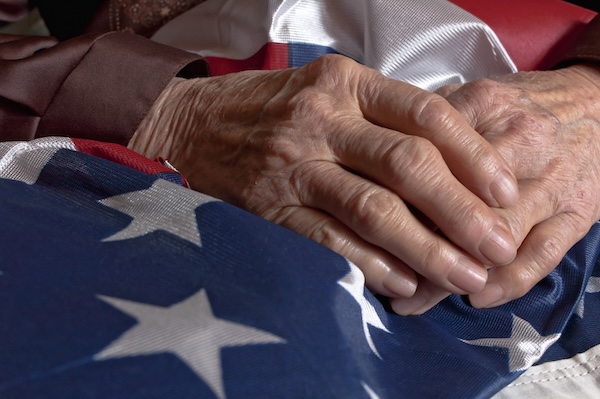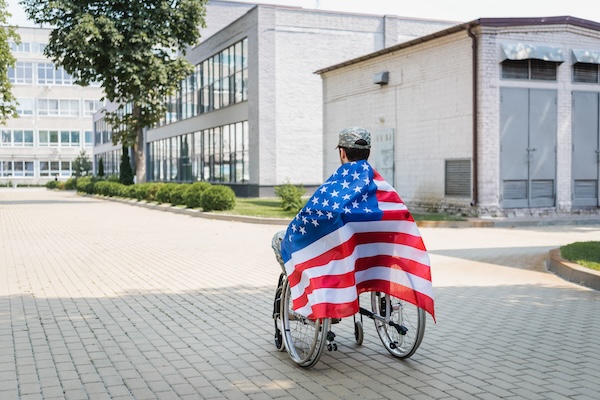Veterans Disability Law – Tuck Beard Law
At Tuck Beard Law, we are honored to serve the veterans who have served our country. Veterans Disability Law is dedicated to helping veterans secure the disability benefits they deserve for injuries, illnesses, and conditions connected to their service. Navigating the VA disability claims process can be complex and frustrating, and Attorney Tuck Beard is here to provide veterans with experienced, compassionate guidance. We understand the challenges veterans face in obtaining benefits and are committed to advocating for our clients at every stage of their claim.
What is Veterans Disability Law?
Veterans Disability Law focuses on helping veterans obtain disability compensation from the Department of Veterans Affairs (VA). This compensation is designed to provide financial support to veterans who have become disabled due to service-related injuries or conditions. Veterans Disability Law encompasses a wide range of issues, including initial applications, disability ratings, appeals for denied claims, and increased rating requests for worsening conditions.
At Tuck Beard Law, we guide veterans through the entire VA disability process, from filing the initial claim to representing them in appeals. Our goal is to ensure that each veteran receives the benefits they need to support their health, well-being, and quality of life.
Types of Disabilities Eligible for VA Benefits
The VA provides disability benefits for various physical and mental conditions connected to a veteran’s service. These conditions can include, but are not limited to:
- Physical Injuries: Injuries sustained during active duty, such as joint or muscle injuries, back injuries, amputations, and traumatic brain injuries (TBI).
- Mental Health Conditions: Service-related mental health conditions, including post-traumatic stress disorder (PTSD), depression, and anxiety, are common grounds for VA disability benefits.
- Agent Orange Exposure: Veterans who served in specific areas or time periods may be eligible for benefits if they suffer from conditions related to Agent Orange exposure, such as certain cancers, diabetes, or ischemic heart disease.
- Hearing Loss and Tinnitus: Many veterans experience hearing loss or tinnitus due to exposure to loud noises during service. These conditions are frequently accepted by the VA for disability compensation.
- Respiratory and Cardiovascular Conditions: Veterans exposed to burn pits, asbestos, or other hazardous materials during service may suffer from respiratory or cardiovascular conditions that qualify for VA benefits.
- Conditions Related to Gulf War Syndrome: Veterans who served in the Gulf War and other recent conflicts may experience a range of symptoms, collectively known as Gulf War Syndrome, that can make them eligible for disability benefits.
At Tuck Beard Law, we work closely with veterans to ensure that all service-related conditions are thoroughly documented, enabling them to receive the full benefits they deserve.
The VA Disability Claims Process
The VA disability claims process can be challenging, involving multiple steps, detailed documentation, and often long wait times. Here’s a general overview of the process:
- Initial Application: The first step is to file an initial claim with the VA, providing evidence of the disability and its connection to the veteran’s service. The application includes medical records, service records, and any other relevant documentation.
- VA Decision and Rating: Once the application is submitted, the VA will review the claim and assign a disability rating based on the severity of the condition. This rating, given as a percentage, determines the monthly compensation amount. Ratings can range from 0% to 100%, with higher ratings reflecting more severe disabilities.
- Appeal (if necessary): If the claim is denied or the veteran believes the disability rating is too low, an appeal can be filed. This allows the veteran to submit additional evidence, request a review by a higher-level official, or seek a hearing with a Veterans Law Judge.
- Request for Increased Rating: If a veteran’s condition worsens over time, they may file for an increased rating to receive higher compensation. This requires updated medical evidence demonstrating the progression of the disability.
At Tuck Beard Law, we assist clients through every step of the VA disability claims process, from gathering the necessary evidence to ensuring all documents are filed accurately and on time. Our priority is to ease the burden on veterans and help them navigate the VA system with confidence.
Why Are VA Disability Claims Denied?
Unfortunately, many VA disability claims are initially denied, often due to issues that could have been addressed with the right guidance and documentation. Common reasons for denial include:
- Insufficient Evidence: The VA requires clear evidence that the disability is connected to the veteran’s service. Without detailed medical and service records, a claim may be denied.
- Missed Deadlines: Filing deadlines are critical in the VA disability process. Missing a deadline can delay benefits or even result in a denial.
- Inadequate Medical Documentation: Veterans must provide documentation of their diagnosis, treatment, and symptoms. Medical records that lack specific information may lead to a denial.
- Errors in the Application: Errors in filling out forms or missing information can result in delays or rejections. Working with an experienced attorney can help ensure that all necessary information is included in the application.
At Tuck Beard Law, we work closely with clients to address these common issues and build strong, well-documented claims that have a higher chance of approval.
Appealing a Denied Claim
If a VA disability claim is denied or receives an unfavorable rating, veterans have the right to appeal the decision. The appeals process offers several options, including:
- Higher-Level Review: A senior claims adjudicator reviews the case without new evidence, focusing on any errors in the original decision.
- Supplemental Claim: Veterans may submit new and relevant evidence to support their claim, prompting a review by the VA.
- Board of Veterans’ Appeals (BVA) Hearing: Veterans can request a hearing with a Veterans Law Judge to present their case, allowing them to explain their situation and provide additional context.
Appeals can be complex and time-consuming, but Tuck Beard Law is here to guide clients through each step, ensuring that they have the support and resources they need to build a strong appeal.




